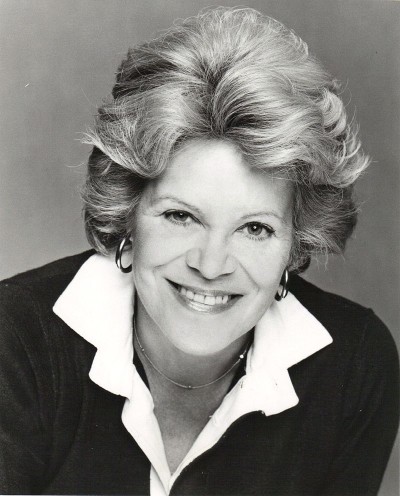Rachel Roberts (Rachel Roberts)

Rachel Roberts was born in Llanelli, Carmarthenshire, Wales. After a Baptist upbringing (against which she rebelled), followed by study at the University of Wales and the Royal Academy of Dramatic Art, she began working with a repertory company in Swansea in 1950. She made her film debut in the Welsh-set comedy Valley of Song (1953), directed by Gilbert Gunn. Her portrayal of Brenda in Karel Reisz’s Saturday Night and Sunday Morning (1960) won her a British Academy Film Award. Lindsay Anderson cast her as the suffering Mrs Hammond in This Sporting Life (1963), earning another BAFTA and an Oscar nomination. Both films were significant examples of the British New Wave of film-making. In theatre, she performed at the Royal Court and played the title role as the life-enhancing tart in Lionel Bart’s musical Maggie May (1964). In films, she continued to play women with lusty appetites as in Lindsay Anderson’s O Lucky Man! (1973), although the haunting Australian-made Picnic at Hanging Rock (1975), directed by Peter Weir, provided her with a different kind of role, as the authoritarian head teacher of a Victorian girls’ school. After relocating to Los Angeles in the early 1970s, she appeared in supporting roles in several American films such as Foul Play (1978). Her final British film was Yanks (1979), directed by John Schlesinger, for which she received a Supporting Actress BAFTA. In 1979, Roberts co-starred with Jill Bennett in the London Weekend Television production of Alan Bennett’s The Old Crowd, directed by Lindsay Anderson and Stephen Frears.
She married Alan Dobie (1955–1961), then Rex Harrison (1962–1971). Both marriages ended in divorce. Her alcoholism and depression increased after her divorce from Harrison. Devastated by their divorce, she moved to Hollywood in 1975 and tried to forget the relationship. In 1980, a final attempt to win Harrison back proved futile, and, impulsive and insecure, she committed suicide on 26 November 1980, at her home in Los Angeles. It was reported that her death was a result of swallowing lye, alkali, or another unidentified caustic substance, as well as barbiturates and alcohol, as detailed in her posthumously published journals. The corrosive effect of the poisonous agent was an immediate cause of death. Her gardener found her body on her kitchen floor, lying amidst shards of glass; she had fallen through a decorative glass divide between two rooms. Her cause of death was initially reported as cardiac arrest. The coroner documented the cause of death as “swallowing a caustic substance” and, later, “acute barbiturate intoxication.” It was ruled a suicide. She was 53 years old. She was cremated at the Chapel of the Pines Crematory in Los Angeles. Her journals became the basis for No Bells on Sunday: The Memoirs of Rachel Roberts (1984). In 1992, Roberts’ ashes, along with those of her very good friend Jill Bennett (who committed suicide in 1990), were scattered on the River Thames in London by director Lindsay Anderson during a boat trip, with several of the two actresses’ professional colleagues and friends aboard; musician Alan Price sang “Is That All There Is?” The event was included as a segment in Anderson’s BBC documentary film, also titled Is That All There Is?
Born
- September, 20, 1927
- United Kingdom
- Llanelli, Carmarthenshire, Wales
Died
- November, 26, 1980
- USA
- Los Angeles, California
Cause of Death
- suicide
Other
- Cremated


